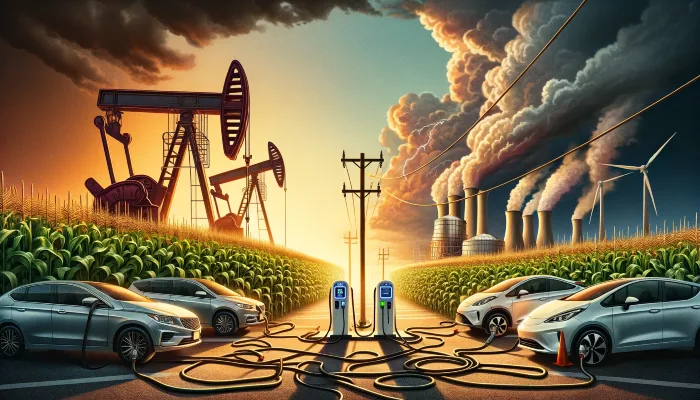Big Oil and biofuel producers are teaming up against electric vehicles (EVs). Bloomberg reported that the rapid rise of EV sales is challenging both the oil and biofuel industries. Traditionally, these industries don’t get along. But now, they’re united against policies that favor EVs as the future’s only option.
Big Oil and Big Corn are worried about EVs. They’re backing a bill by Senator Deb Fischer that wants more ethanol in gasoline year-round. Normally, E15, a blend with 15% ethanol, is sold only in colder months. In summer, it’s E10. E15 isn’t sold in summer because it could lead to more smog.
The oil industry didn’t want more ethanol before because it meant selling less gasoline. But they’ve changed their stance to fight the growth of EVs. This change comes as the demand for EVs starts to slow.
The EV world noticed.
Transport & Environment, a pro-electrification group, released a report called “The big e-fuel lie.” It said the oil industry supports biofuels to stop the shift to electric cars.
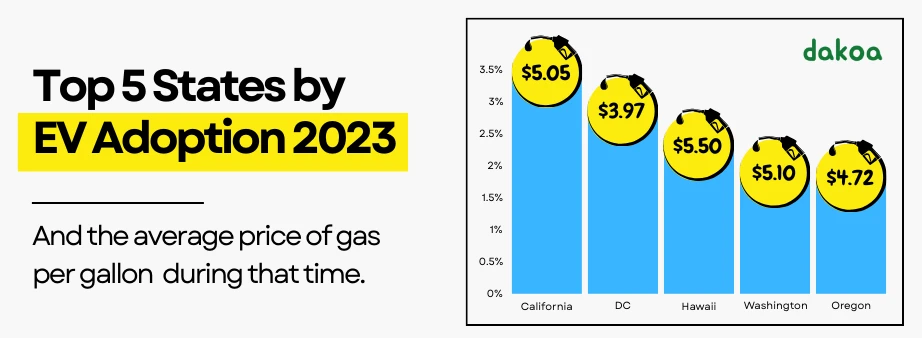
Consumer Reports Crunched The Numbers on EV Maintenance Costs
The independent and trustworthy Consumer Reports found that electric vehicles have nearly 80% more problems and are generally less reliable than gasoline-powered cars. It gets worse!
Their research also found that plug-in hybrid electric vehicles (PHEV) have an average of almost 150% more problems. Interestingly, ordinary hybrid cars produced by major automakers (Ford, GM, Toyota, Nissan) actually clock in with a quarter fewer problems than gas-powered cars.
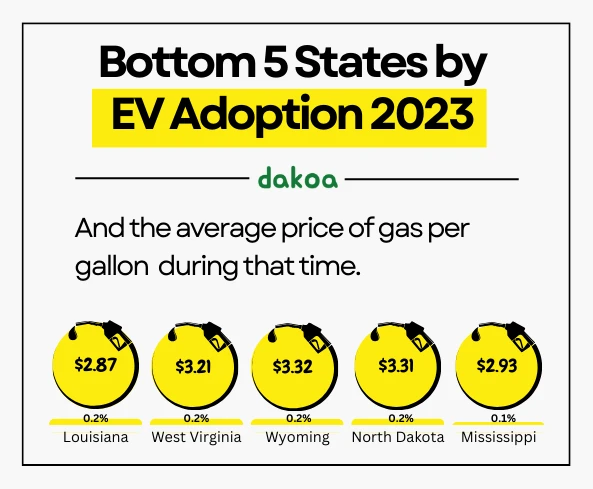
The EV Math Doesn’t Add Up
The oil industry is overreacting.
According to Motor Intelligence, the auto industry consulting firm, EV sales hit 7.5% of all automotive sales last year but are expected to slow down. Even EV supporters recognize this, but they’re downplaying it. Ford is cutting its production targets, showing the challenges facing EVs.
A quick note about that 7.5% figure: it’s accurate, but there’s a caveat you should know. That figure includes ALL automotive purchases, meaning commercial as well. Electric vans and commercial trucks are growing thanks to strong government incentives and positive publicity associated with a quick carbon-emission reduction headline for the company.
Now, when it comes to individual consumers looking to buy their next car or truck, it’s all about comfort, convenience, and the price of gas – it’s mostly about the price of gas.
When a gallon is nearing $5, EV sales surge. Right now, at $3 or less, sales have plummeted.
But the auto manufacturers are already stepping back their previously stated EV goals. Ford recently announced that the auto giant would delay a new EV battery plant, reduce the size of another, and postpone $12 billion of future electric vehicle investments.
General Motors also announced that it would delay a large-scale retooling of an EV plant.
In fact, GM’s CEO Mary Barra did a little side-stepping recently on the topic: “We still have a plan in place that allows us to be all light-duty vehicles EV by 2035. We’ll adjust based on where the customer is and where demand is. It’s not going to be, if we build it, they will come. We’re going to be led by the customer.”
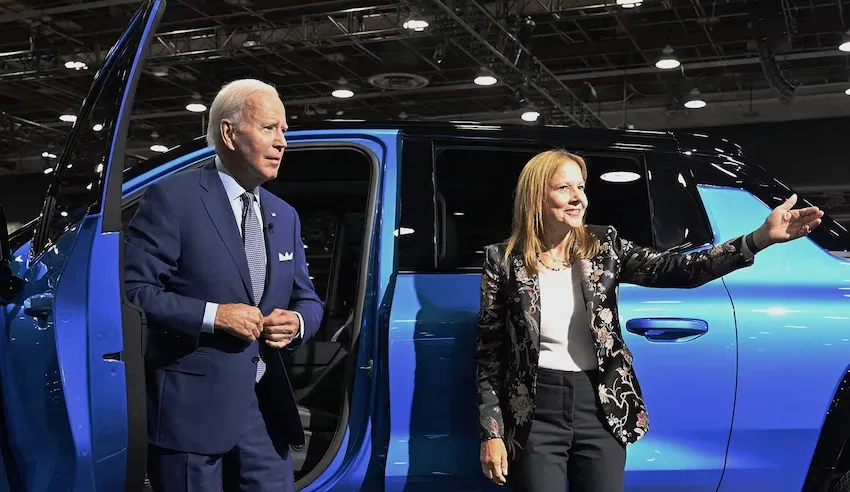
Last month, German automaker Audi said it would cut back its electric vehicle rollout in the coming year due to slowing growth and declining interest.
Even Volkswagen has delayed its lofty EV ambitions in Europe.
Simply put, EVs have features that deter buyers and won’t quickly reduce oil demand. Even in Norway, with the highest EV ownership, oil demand is steady. Big Oil’s worry comes from political pressure to support electric cars.
“Every automaker was so aggressive with their plans,” Jessica Caldwell, head of insights for Edmunds’ stated. “We’re seeing those being dialed back to better match where consumers are right now.”
Big Oil’s support for Big Corn and more ethanol could hurt them and their customers and, in our opinion, it’s entirely unnecessary. Biofuels need a lot of land, which could have been used for food crops, potentially raising food prices. But they believe the bill they support will bring market stability and prevent supply issues. It likely won’t.
More To Discover
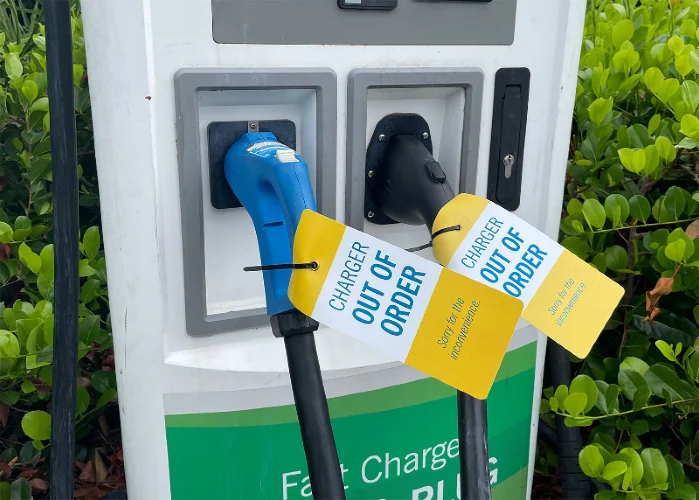
While it’s true that the Biden administration’s EV goal is for half of new car sales to be EVs by 2030. The oil industry has forgotten the most important point – most Americans don’t want to drive EVs, and no one can force them.
Wondering why the majority of Americans aren’t looking to swap their gas-guzzler out for an electric vehicle? Head over to YouTube and do a quick search on Tesla’s in Winter or Tesla in Snow, or Cross Country Trip in Tesla.
The EV industry commands only 1.3% of the US private automotive market, meaning over 98% of people have chosen not to bother with charging stations (that are often out of service), not being able to start their EV car in winter, and the higher cost of maintenance and repairs associated with EV ownership.







